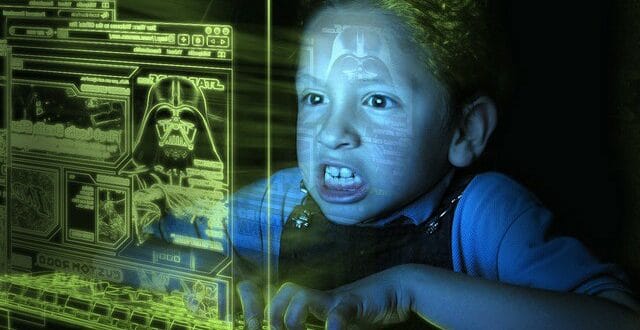DIE WELT/Worldcrunch
BERLIN – Dr. Manfred Spitzer knows that people find his arguments provocative. In his first book, he warned parents of the very real dangers of letting their children spend too much time in front of the TV. Now, in a second book called Digitale Demenz [Digital Dementia], he’s telling them that teaching young kids finger-counting games is much better for them than letting them explore on a laptop.
Spitzer, 54, may be a member of the slide-rule generation that learned multiplication tables by heart, but his work as a neuropsychiatrist has shown him that when young children spend too much time using a computer, their brain development suffers and that the deficits are irreversible and cannot be made up for later in life.
South Korean doctors were the first to describe this phenomenon, and dubbed it digital dementia – whence the title of Spitzer’s book. Simplistically, the message can be summed up this way: the Internet makes you dumb. And it is of course a message that outrages all those who feel utterly comfortable in the digital world. In the aftermath of the publication of Spitzer’s book, they have lost no time venting their wrath across Germany.
And yet Spitzer has accumulated a wealth of scientific information that gives his thesis solid underpinnings, and the studies and data he draws on offer more than enough room for consternation.
Everything leaves traces in the brain
According to his study, many young people today use more than one medium at a time: they place calls while playing computer games or writing e-mails. That means that some of them are packing 8.5 hours of media use per day into 6.5 hours. Multitasking like this comes at the cost of concentration – experiments by American researchers have established this. And to Spitzer, those results mean just one thing: “Multitasking is not something we should be encouraging in future generations.”
Because everything a person does leaves traces in the brain. When development is optimum, memory links are formed and built on during the first months and years of life, and the structure adds up to a kind of basic foundation for everything else we learn. Scientists call this ability of the brain to adjust to new challenges “neuroplasticity.” It is one of the reasons for the evolutionary success of the human species. Spitzer also sees it as a source of present danger.
When drivers depend exclusively on their navigation technology, they do not develop the ability to orient themselves, although of course the brain offers them the possibility of learning how to do so. The same applies to children who use electronic styluses on a SMART board instead of learning how to write — the brain is kept in check. And because computers take over many classrooms and other functions that are actually good practice for kids, “it inevitably has a negative effect on learning,” Spitzer argues.
Digital media should be banned from classrooms
Stating that there have so far been no independent studies “that unequivocally establish that computers and screens in the classroom makes learning any more effective,” Spitzer goes so far as to recommend that digital media be banned from the classroom. Even more drastically, he writes: “In reality, using digital media in kindergarten or primary school is actually a way of getting children addicted.” Strong stuff for the generations who take computers and the Internet for granted, using them as a source of information and a space to communicate via social networks — and who enjoy doing so. The Internet has become the fourth cultural technology, alongside reading, writing and arithmetic.
Spitzer quotes Swiss pedagogue and educational reformer Johann Heinrich Pestalozzi (1746-1827), who wrote that the process of learning involves the heart along with the brain and the hands. He believes it would be better if kids learned finger games to help them deal with numbers, instead of relying on computers. In a country like Germany, whose major resource is smart people and innovative ideas, maybe we should be taking Spitzer’s warnings more seriously.
 Conspiracy Plot
Conspiracy Plot



